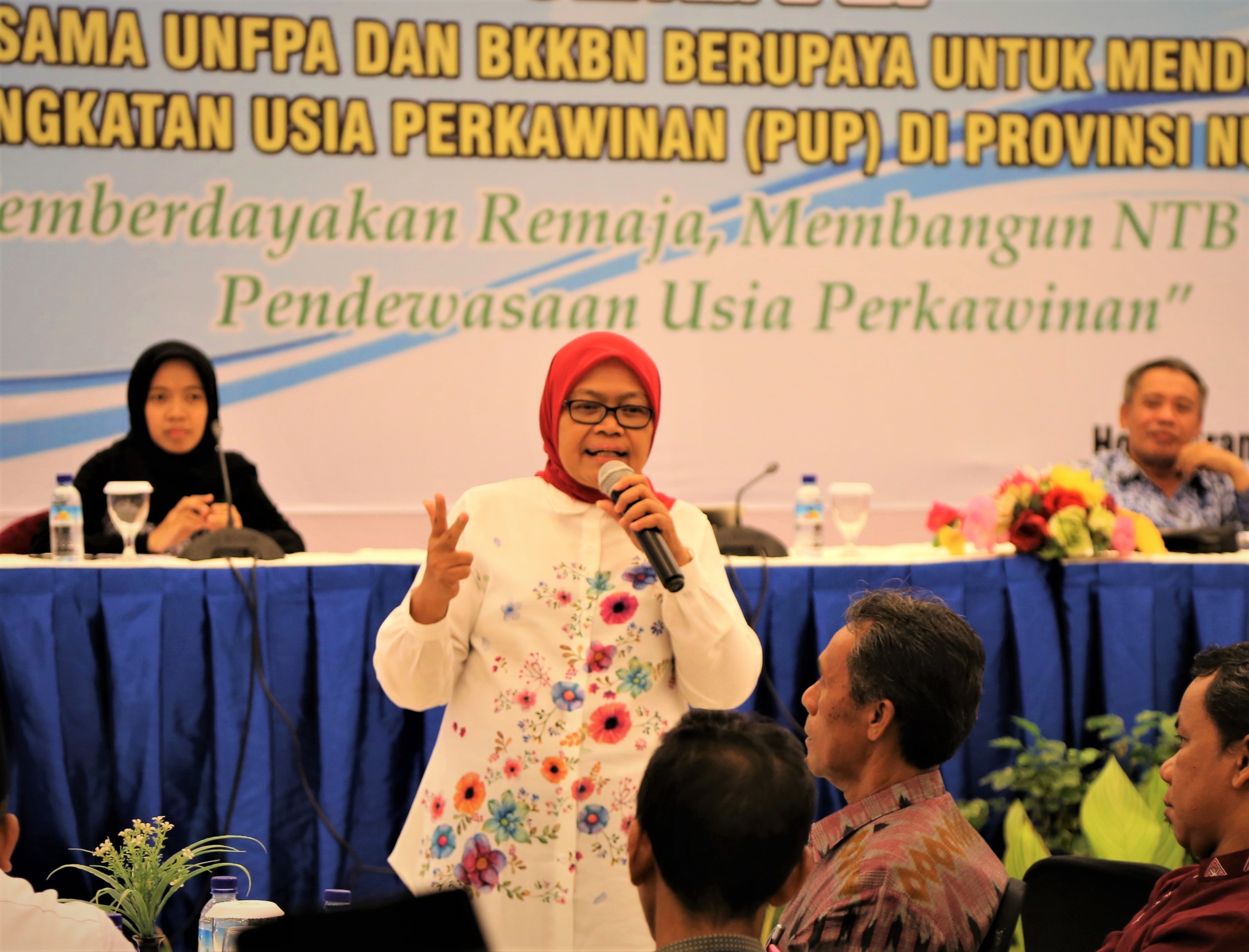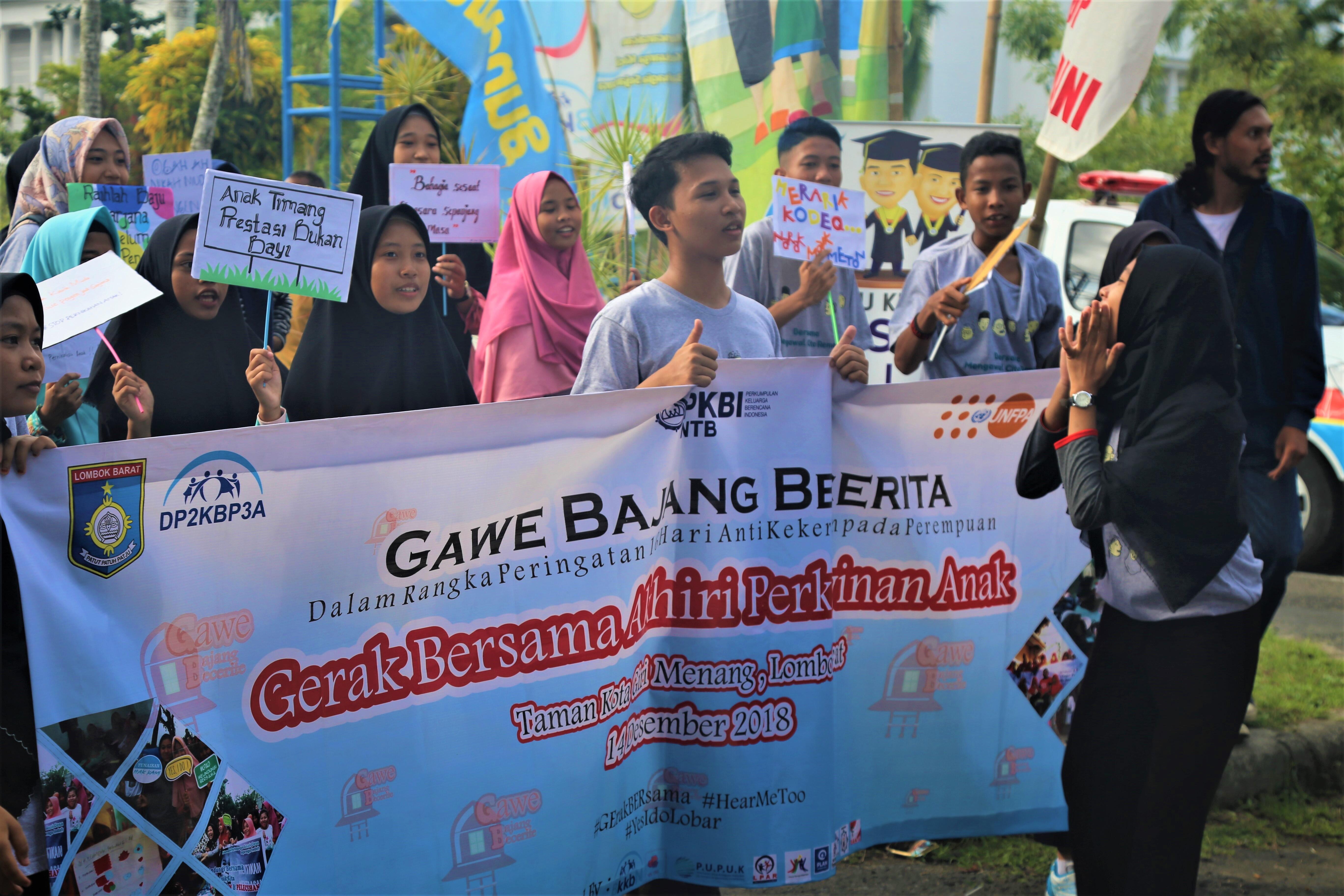Mataram, 17 December 2018. "My friends usually call me Liza. I am from Jerowaru District, East Lombok District. I married for the first time at the age of 15, when I was still in junior high school. My husband was in the third grade of senior high school in my hometown. I stopped school after marriage. Unfortunately, my marriage lasted only three months. Not long after divorce, I married again with a boy who was still in the second grade of Islamic High School. The second marriage did not last long either and I divorced again. Now, I am 17, already married twice, but failed to establish a family. I also cannot continue my school, even though I really want to. I am embarrassed to continue my education."



